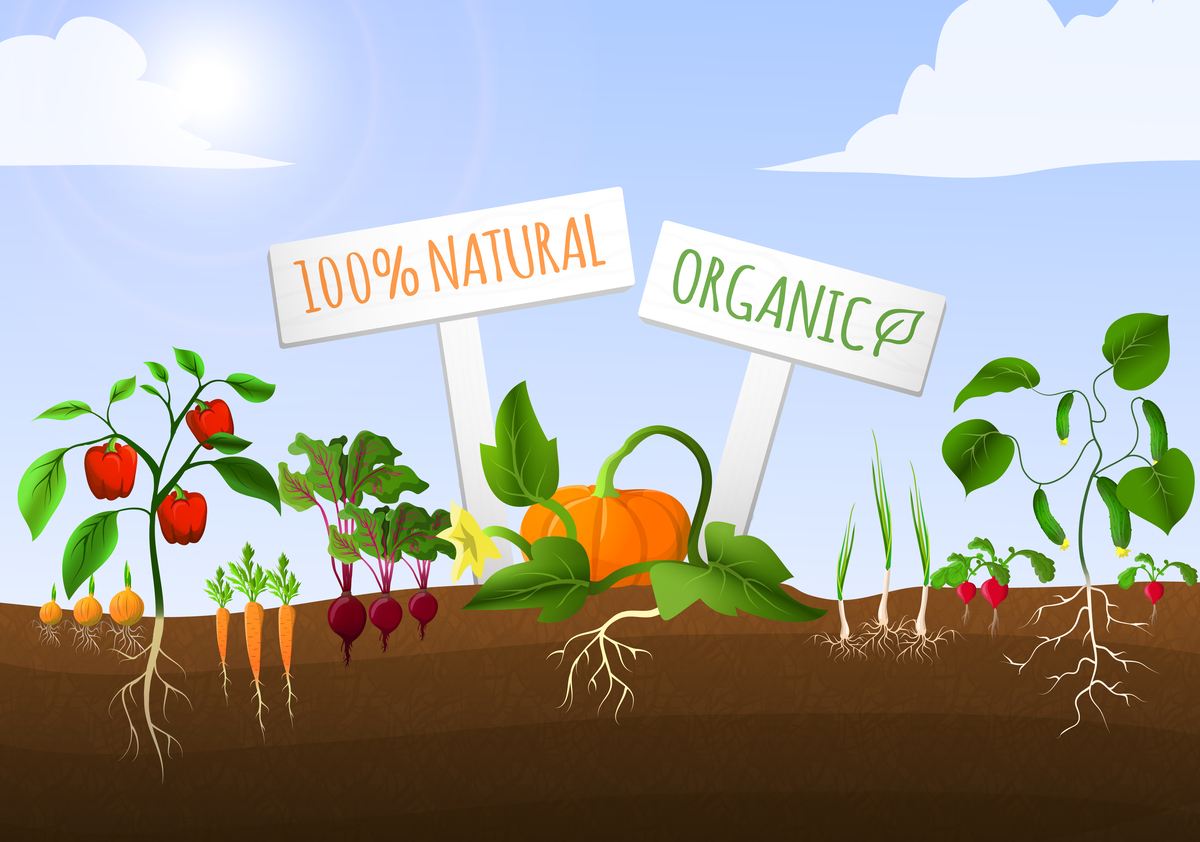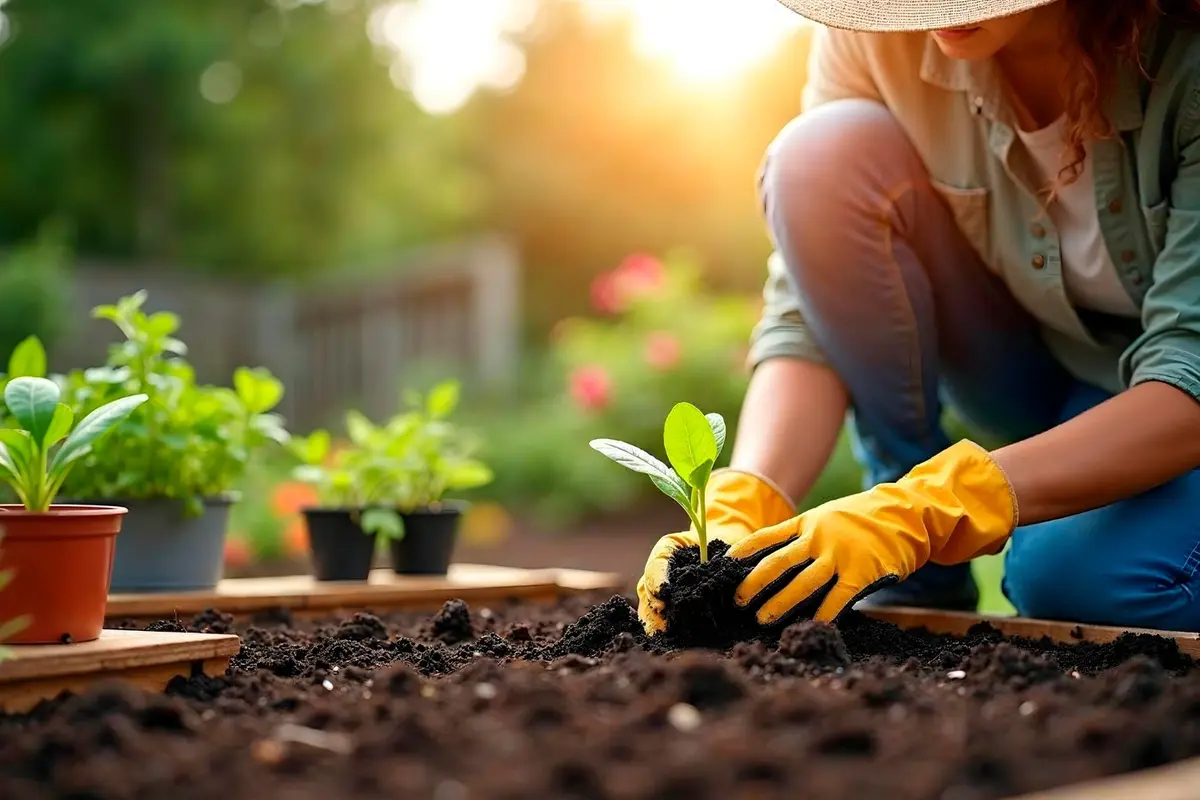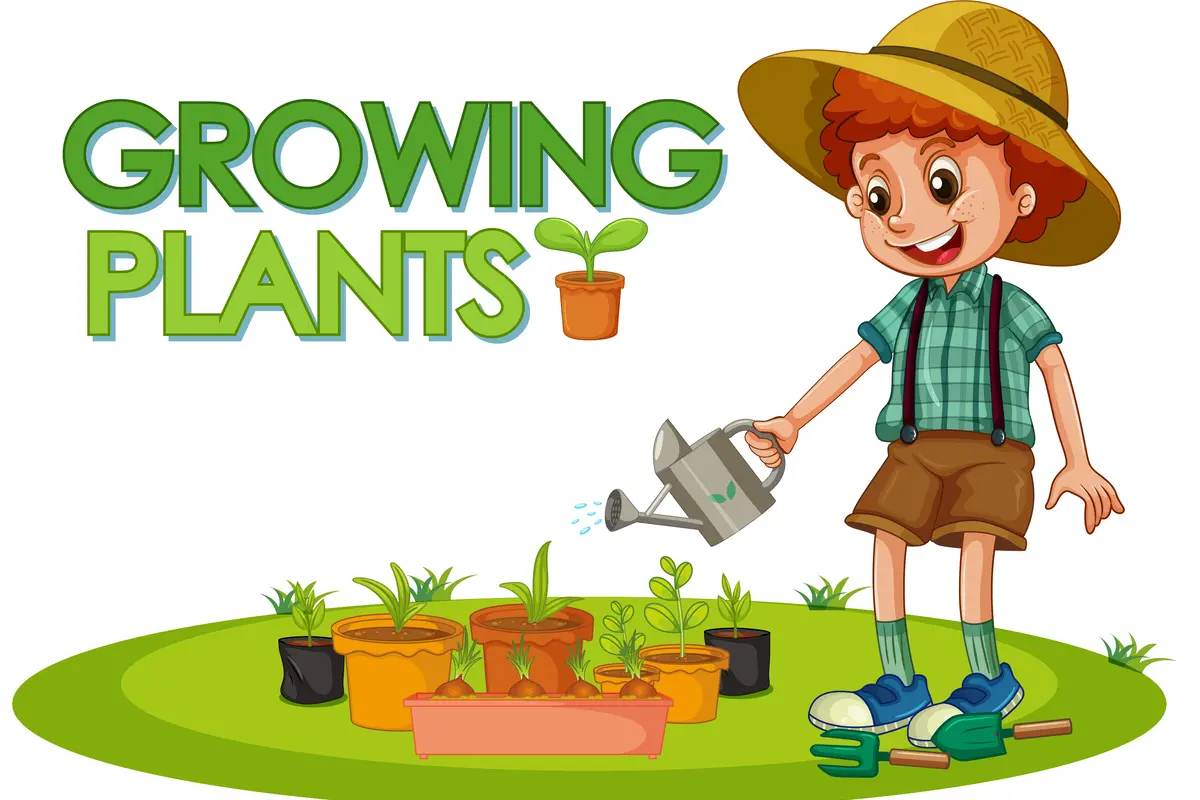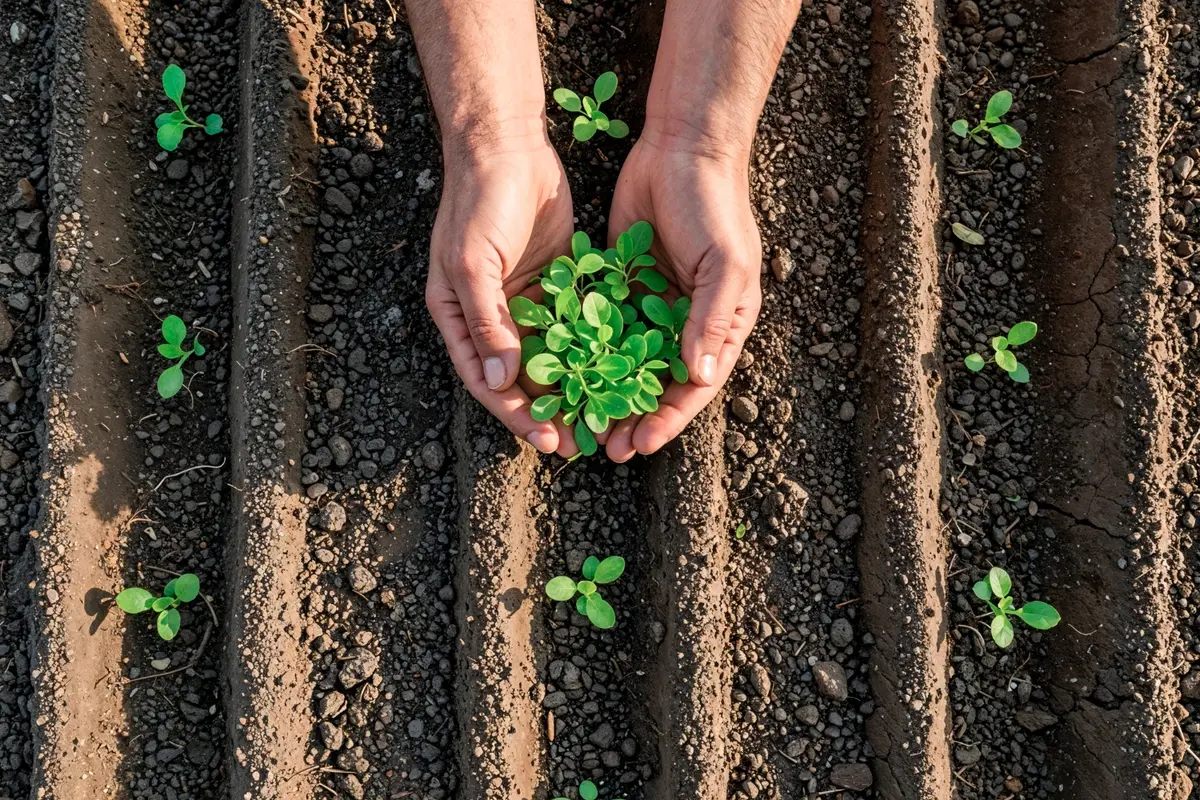The increasing use of chemical and synthetic fertilizers in agriculture poses significant concerns for the future. In the short term, these fertilizers may give you a better result in production, but over time, they may lead to adverse consequences like soil degradation, loss of biodiversity, and water pollution. Furthermore, these fertilizers are also liable to climate change due to the release of greenhouse gases from the production and application of these fertilizers. That’s why, in the long run, we need more sustainable and eco-friendly agricultural practices to maintain our food security as well as the environment.
Here comes vermicompost fertilizer, which offers numerous advantages over chemical fertilizers. First of all, it is an organic and sustainable option for increasing soil fertility without harming the environment or depleting natural resources. Using vermicompost, you can enhance the long-term fertility and resilience of your agricultural lands as vermicompost releases nutrients gradually, reducing the risk of nutrient runoff and leaching. That’s why, as an eco-friendly, soil-enriching alternative, vermicompost can be one of the best alternatives that support both plant health and environmental sustainability.
Table of Contents
What is vermicompost fertilizer?
Vermicompost is a nutrient-rich organic fertilizer and soil conditioner prepared by composting organic materials with the help of earthworms. These earthworms consume and digest the organic matter, converting it into a nutrient-rich humus that is rich in essential nutrients like nitrogen, phosphorus, and potassium. Vermicompost is an eco-friendly alternative to synthetic chemical fertilizers, which has the ability to improve soil structure, enhance nutrient availability to plants, and increase water retention in the soil.
Nutrient content of vermicompost
Vermicompost is well-known for its balanced nutrient content, making it one of the most effective nutrient-rich organic fertilizers for sustainable agriculture and gardening practices. It contains all essential macronutrients such as nitrogen (N), phosphorus (P), potassium (K), calcium (Ca), magnesium (Mg), and micronutrients like iron (Fe), manganese (Mn), zinc (Zn), copper (Cu), and boron (B) required for better plant growth and yield. Also, vermicompost is rich in organic matter and various beneficial microorganisms, which help to enhance soil fertility, structure, and overall plant health.
Benefits of vermicompost fertilizer
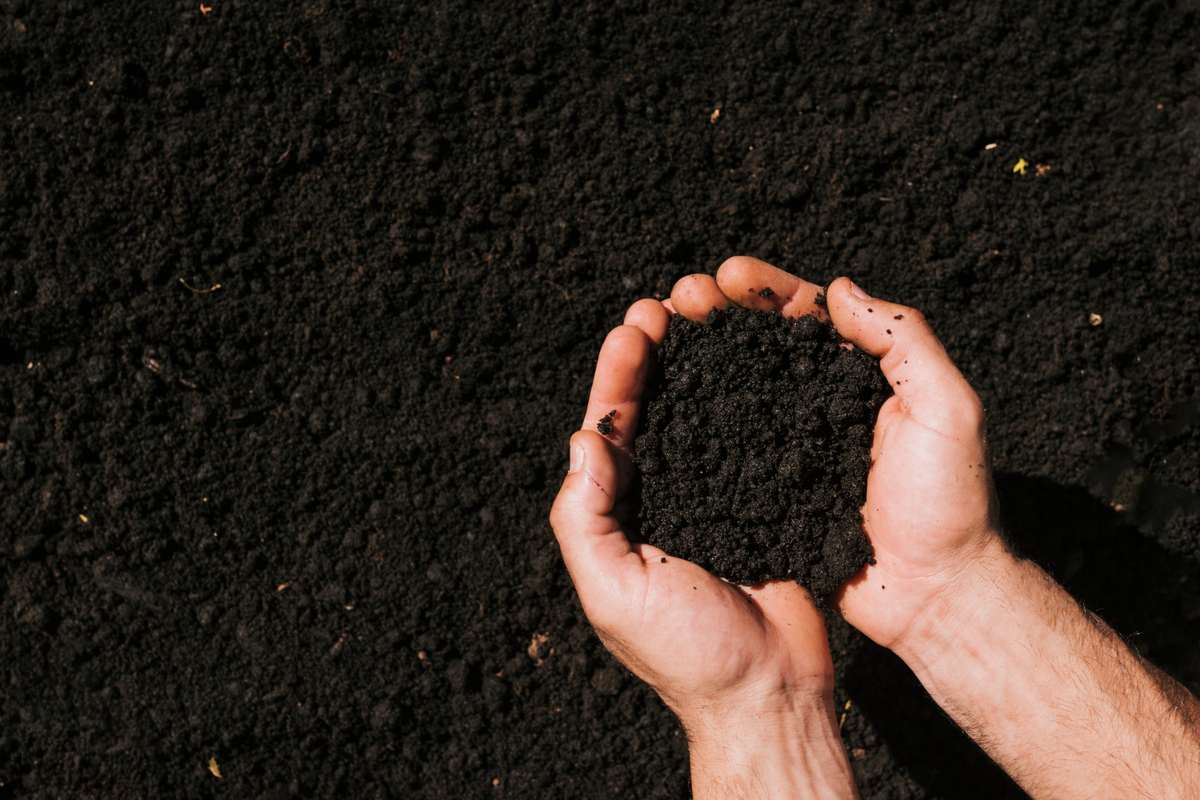
Vermicompost fertilizer has a wide range of benefits in agricultural and gardening practices, making it a valuable organic fertilizer and soil conditioner.
Nutrient-Rich: Vermicompost contains all essential nutrients such as nitrogen, phosphorus, potassium, calcium, magnesium, and micronutrients. These nutrients are easily absorbed by the soil to promote plant growth and development.
Improved Soil Structure: Vermicompost helps to improve soil structure, aeration, and water retention capacity of the land.
Microbial Activity: Vermicompost is rich in beneficial microorganisms such as bacteria and fungi, which help to maintain soil health by decomposing organic matter and enhancing nutrient availability.
Disease Suppression: The beneficial microorganisms present in vermicompost help to suppress soil-borne diseases, as well as reduce the dependency on chemical pesticides.
Increased Crop Yields: Vermicompost can lead to higher crop yields as well as improve crop quality.
Sustainable Fertilization: Vermicompost is an eco-friendly alternative to chemical fertilizers that promote crop production organically. The nutrients present in vermicompost are slow-releasing in nature, which makes sure that nutrients are available to plants over an extended period of time and also reduces the risk of nutrient runoff and leaching.
Environmental Benefits: As vermicompost is prepared through the process of composting organic waste, that’s why it helps in sustainable waste management practices.
Versatility: As an organic fertilizer, vermicompost can be used in various practices, including gardening, agriculture, landscaping, seed starting, and potting mix preparation.
These benefits collectively contribute to improved soil fertility, healthier plants, and help to make one step forward to crop production sustainably for growers and gardeners.
Preparation of vermicompost fertilizer at home
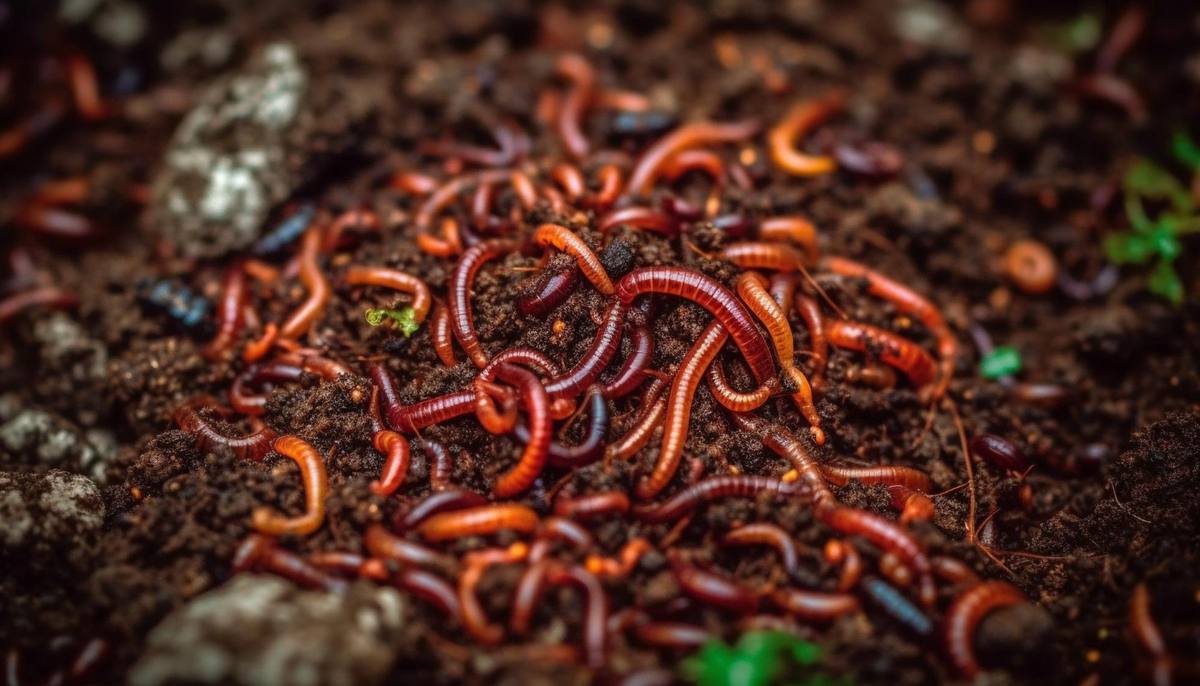
Preparing vermicompost fertilizer at home involves several steps, which I am going to discuss below.
1. Gather the required materials
First of all, you need to gather all the essential materials and equipment that will be required for vermicomposting. You will need a container or worm bin, bedding materials like cardboard, organic waste materials like kitchen waste, and a population of earthworms (typically red wigglers).
2. Set up the container or worm bin
Choose a suitable container, such as a plastic or wooden bin with a lid. Also, you can purchase a specialized worm composting bin from the market. Then drill small holes in the lid for aeration and drainage. After that, add a layer of bedding material about 4-6 inches deep at the bottom of the bin.
3. Add organic waste
After that, add organic waste like fruit and vegetable peels, eggshells, leaves, and small twigs to the bedding. Bury the waste materials in the bedding to prevent flies and odors.
4. Introduce earthworms
Add the earthworms on top of the bedding and organic waste. The earthworm population may depend on the size of your bin or container. For a small container, 1000 red wigglers may be sufficient, which you can purchase from the market. Must keep the bin in a cool and shaded area.
5. Maintain proper conditions
The bedding and waste materials must be moist but not waterlogged. If required, you can spray with water as needed. Temperature is an important factor for the whole process; maintain 13°C to 25°C during the process to keep the worms comfortable.
6. Harvest vermicompost
After almost two to three months, the bedding and organic waste will be transformed into dark, crumbly vermicompost, and then you will be able to harvest your organic vermicompost fertilizer. After harvesting, you can start the whole process again to get a continuous supply of vermicompost.
Always remember that preparing vermicompost at home requires regular attention to ensure the quality of the vermicompost produced. With proper care, it can be a sustainable way to recycle organic waste and get homemade organic fertilizer for your gardening or farming practices.
How to use vermicompost
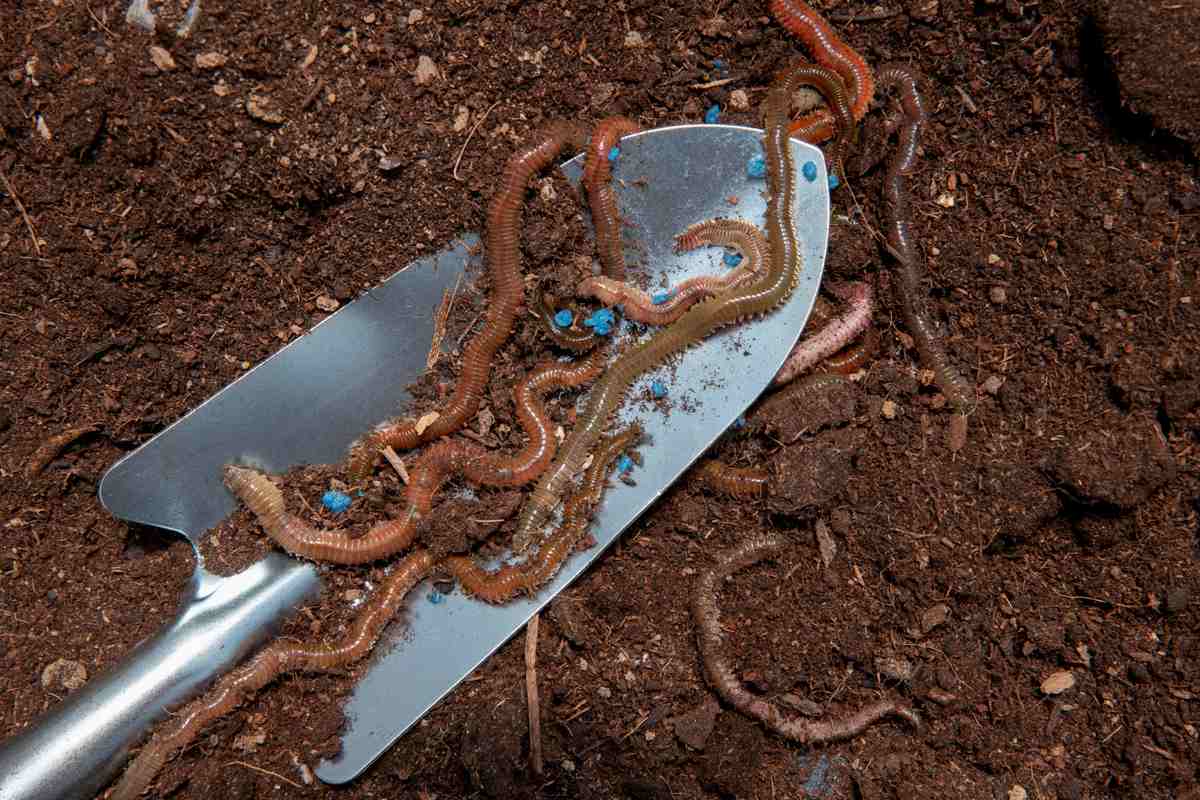
To effectively use vermicompost, you can apply it as a top dressing in your field around established plants, and in gardening, you can mix it with garden soil and potting mix. Before planting, you can spread vermicompost evenly on the soil surface and blend it into the top few inches with a rake or garden fork. Also, you can easily make vermicompost tea by steeping vermicompost in water and using it as a foliar spray to reduce pests and diseases, or use it as a soil drench. Follow recommended guidelines before using vermicompost and make sure not to overuse it. Store unused vermicompost fertilizer in a cool, dry place to maintain its quality for future use.
Buy Organic Vermicompost Fertilizer
Difference between compost and vermicompost:
| Compost | Vermicompost |
In composting, organic materials are allowed to decompose over time by aerobic bacteria, fungi, and other microorganisms. | On the other hand, vermicomposting involves the use of specific earthworm species to digest and break down organic materials. |
| Compost typically has a good nutrient content, but may vary depending on the input materials. | Vermicompost is known for its well-balanced nutrient composition of all essential micronutrients along with beneficial microbes. |
| Compost has a crumbly texture and is usually darker in color. | Vermicompost also has a crumbly texture but can be even darker in color. |
| Composting typically takes several months to a year to produce usable compost. | Producing vermicompost in a matter of weeks to a few months, thanks to the efficient digestive processes of earthworms. |
| Composting may produce some odor during the decomposition process. | Vermicomposting tends to have fewer odor issues. |
FAQs
What are the eco-friendly alternatives to vermicompost?
There are several environment-friendly alternatives to vermicompost present in gardening and agricultural practices including traditional compost, which is created through decomposition with the help of microorganisms, cow or horse manure, green manure, and different organic fertilizers and soil conditioners derived from materials such as bone meal, blood meal, seaweed.
What is the difference between vermicompost and organic fertilizer?
Vermicompost is also a type of organic fertilizer, but the key difference lies in its production processes. Where vermicompost is specifically produced by using earthworms to decompose organic materials, on the other hand, organic fertilizer is a broader term that encompasses various natural materials, such as compost, manure, bone meal, or plant-based products, which are used to enhance soil fertility.
Can vermicompost replace chemical fertilizer?
Although vermicompost is highly beneficial, in the current situation due to the increasing population and food requirements it may not be possible to entirely replace chemical or synthetic fertilizers in all situations. But we together can make the change to promote sustainability and eco-friendly gardening and farming practices for our future generation.

